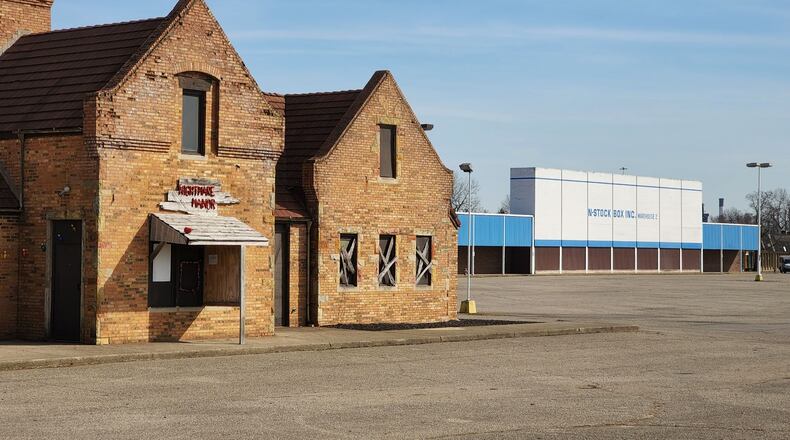The homeless issue in the city was one of the topics discussed Saturday morning on the the second day of the City Council Strategic Planning Session hosted by Atrium Medical Center.
“Such a tough topic” is how Palenick described homelessness. He has worked extensively on the issue during his two years as city manager.
When discussing the homeless, it always comes down to location of services, he said. Residents want to help, but they always ask that the facilities be located in “that other neighborhood,” he said.
Videos of pallet shelter villages were shown to city council members, city staff and the police and fire chiefs.
The pallet homes come in 64 square feet units that hold up to two people and 100 square feet units that hold up to four people.
The pallets are portable, are easy to install and could be used in Middletown, then moved to another city in the county, according to Palenick. He called homelessness a regional issue, one not limited to Middletown.
The 64 units, along with restroom facilities and meeting rooms would cost about $919,000, he said.
Police Chief David Birk said the “first hurdle” would be to determine the right location for the pallet villages.
Palenick said the units should be located on the city’s bus route and probably near an industrial park. He mentioned the shopping center on South University Boulevard that housed the former Target as a possible site because it offers a parking lot.
It’s also important that the “community puts its arms around this,” said Jackie Phillips, the city’s health commissioner.
The web site www.palletshelter.com said it creates “private and safe spaces for anyone in this transitional moment and building a community.”
The private sleeping cabins with lockable doors allow residents to have “a peace of mind while they rest their heads in a safe space,” the web site said.
Bill Fugate, volunteer coordinator for Serving Homeless Alternate Lodging Of Middletown (SHALOM), a church-based homeless shelter that isn’t open this year due to COVID-19, was asked about the need for the pallet homes.
“If you built it they will come,” he said.
But, he said, these type of units are “not the answer; it’s just a Band-Aid.”
City council member Rodney Muterspaw said for the homeless issue to be successfully addressed Middletown needs other neighboring cities to get more involved. Otherwise, he said, if Middletown opens the pallet homes that will only attract more homeless.
“We’re Middletown,” he said. “We take care of our own, but we can’t take care of others.”
SHALOM and local churches are providing free breakfasts three times a week behind First United Methodist Church, 120 S. Broad St.
The meals are served from 8:30 a.m. to 9:30 a.m. every Monday, Wednesday and Saturday and Fugate said about 40 meals are given away each day. That’s about 15 more than two months ago, he said.
The Hope House men’s shelter is located at 1001 Grove St. The facility replaced the 150-year-old former U.S. Hotel on Main Street and it includes a 50-bed emergency shelter for men and 30 one-bedroom apartments for the chronically homeless, said Tim Williams, executive director of operations at Hope House Mission.
Funding for the project came from tax credits, private support and grants, Williams said. Hope House is a subsidiary of City Gospel Mission, which has been based in Cincinnati since 1924.
The warming center is located at 1009 Grove St. Erica Norton, chief operating officer for The Mindful Healing Center, which is running the warming center, said it operates from 5 p.m. to 7 a.m. seven days a week through April 30. That means the cost of operating the center will be about $1,000 a day.
About the Author

